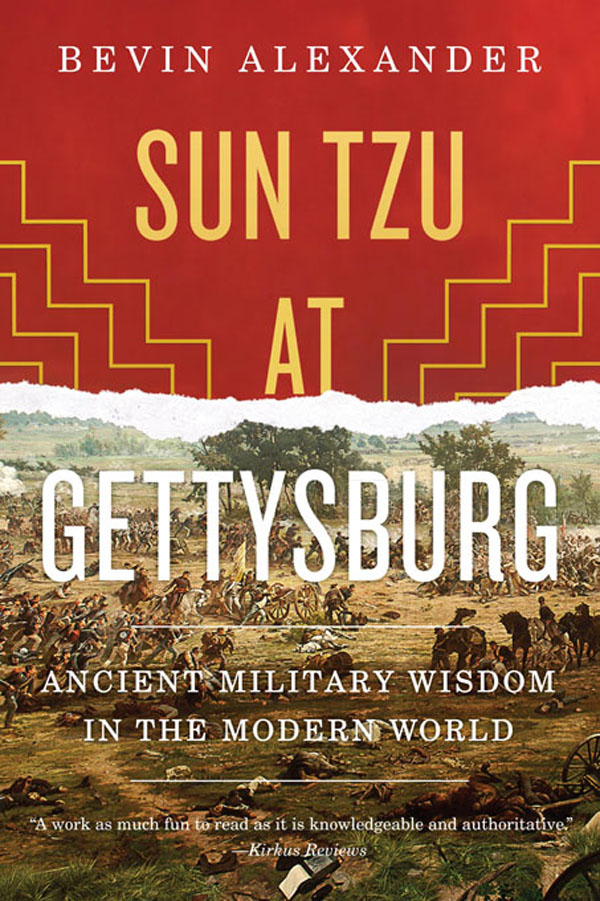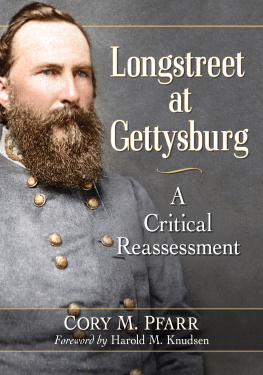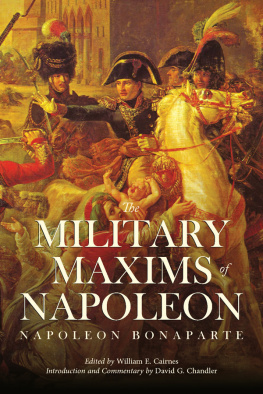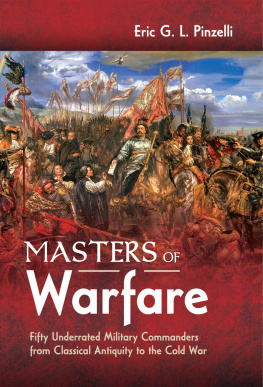
ALSO BY BEVIN ALEXANDER
Inside the Nazi War Machine: How Three Generals Unleashed Hitlers Blitzkrieg upon the World
How the South Could Have Won the Civil War:
The Fatal Errors That Led to Confederate Defeat
How America Got It Right
How Wars Are Won: The 13 Rules of War
Robert E. Lees Civil War
The Future of Warfare
How Great Generals Win
Lost Victories: The Military Genius of Stonewall Jackson
The Strange Connection: U.S. Intervention in China, 19441972
How Hitler Could Have Won World War II
Korea: The First War We Lost
Copyright 2011 by Bevin Alexander
Maps by Jeffrey L. Ward
All rights reserved
Printed in the United States of America
First published as a Norton paperback 2012
For information about permission to reproduce selections from this book,
write to Permissions, W. W. Norton & Company, Inc.,
500 Fifth Avenue, New York, NY 10110
For information about special discounts for bulk purchases, please contact
W. W. Norton Special Sales at specialsales@wwnorton.com or 800-233-4830
Manufacturing by RR Donnelley, Harrisonburg
Book design by Ellen Cipriano
Production manager: Devon Zahn
Library of Congress Cataloging-in-Publication Data
Alexander, Bevin.
Sun Tzu at Gettysburg : ancient military wisdom
in the modern world / Bevin Alexander. 1st ed.
p. cm.
Includes bibliographical references and index.
ISBN 978-0-393-07813-8 (hardcover)
1. Sunzi, 6th cent. B.C. Sunzi bing fa. 2. Command of troopsCase studies.
3. Military historyCase studies. 4. TacticsCase studies. 5. Military art and science.
I. Title.
U101.S96A44 2011
355.02dc22
2011002189
ISBN 978-0-393-34245-1 pbk.
W. W. Norton & Company, Inc.
500 Fifth Avenue, New York, N.Y. 10110
www.wwnorton.com
W. W. Norton & Company Ltd.
Castle House, 75/76 Wells Street, London W1T 3QT
1 2 3 4 5 6 7 8 9 0
CONTENTS

LIST OF MAPS

INTRODUCTION

To Avoid Strength,
Strike Weakness
W e have only one masterwork on the conduct of war. It was produced 2,400 years ago by a Chinese sage named Sun Tzu. His small book, The Art of War , spells out universal principles that describe the nature of war, and these principles are still valid today. This current volume is designed to show that commanders who unwittingly used Sun Tzus axioms in important campaigns over the past two centuries were successful, while commanders who did not apply them suffered defeat, sometimes disastrous, war-losing calamities.
Sun Tzus principles can be applied to any military problem, from the smallest engagement to the largest campaign. Other leaders in other times discovered a number of these principles, but only Sun Tzu put together a comprehensive summary of the essential elements that make warfare succeed. It is this unique contribution to our understanding of armed conflict that led the renowned English strategist Basil H. Liddell Hart to call Sun Tzus book the concentrated essence of wisdom on the conduct of war.
Sun Tzus book has influenced Oriental warfare profoundly for over two thousand years, but it became widely known in the West only in the 1970s. This occurred primarily because both France and the United States encountered guerrilla forces in Vietnam who used Sun Tzus axioms to defeat their armies. Although the Vietnamese Communists possessed only minuscule military power, they nullified the vastly greater strength of the French and the Americans and drove them out of the country.
Until The Art of War became generally recognized in the West, military leaders had to rely on statements and conclusions reached by individual thinkers over the eons. Although some arrived independently at a few of the axioms articulated by Sun Tzu, none produced an all-inclusive theory of warfare. For example, the Bible (2 Samuel 5:2325) contains an injunction to strike indirect blows against the enemy, but this axiom is buried in a vast narrative of inchoate warfare between the Jews and Philistines. Homer tells a marvelous tale of how the beauty of Helen, the abducted wife of Menelaus, launched a thousand ships against Troy, but he offers very little about how the Trojan War was fought. Herodotus and Thucydides describe fascinating histories of the ancient Greeks but give almost no details about how they won and lost their wars. Xenophons march of the ten thousand Greeks to the sea is one of the great adventure stories of all time. Though he provides tantalizing hints of how the Greeks surmounted obstacles, like getting through enemy-infested mountains, he provides little information on the theories the Greeks employed to conduct war.
From narratives written long after they died, we can put together a few ideas about how Alexander the Great conquered the Persian Empire and how Hannibal forced Rome to tremble in her gates. But neither great captain left any account of his theory of war. Three Byzantine treatises, Emperor Maurices Strategikon of 578, Emperor Leo the Wises Tactica of 900, and Nicephorus Phocass discourse of 980, gave practical instructions on warfare that allowed the Eastern Roman Empire to endure for hundreds of years. Between the time of these ancient warriors and the present, there have been few enough pronouncements by military leaders, and no overall theory of warfare. Robert the Bruce (12741329) left a testament urging the Scots to avoid stand-up war with the English and keep their independence by guerrilla-like war in hills and morasses. The French general Pierre-Joseph de Bourcet (17001780) proposed a plan with branches, of dividing an army into several columns and marching them on separate targetsforcing the enemy to divide his strength and allowing concentration on one or more ill-defended objectives. Napolon Bonaparte (17691821) produced no summary of his axioms, but his campaigns reveal that he relied on the offensive, pursued a defeated enemy, trusted on speed to gain time, and concentrated superior strength on the battlefield. The Prussian Carl von Clausewitz (17801831) made the important point that war is only a continuation of national policy, not an end in itself. But his emphasis on total war and bloodshed undermined his theory. If war is a continuation of policy, the goal is the primary purpose. In emphasizing victory, however, Clausewitz looked only to the end of the war, not the subsequent peace. Thomas J. Stonewall Jackson (18241863) said, Always mislead, mystify, and surprise the enemy.... Never fight against heavy odds.
These examples show that, though military leaders throughout history have occasionally produced incisive thoughts about warfare, none except Sun Tzu has demonstrated an extensive understanding of war in all of its aspects. Accordingly, Sun Tzu provides us the only comprehensive, coherent guide to the way war should be conducted. We can also follow his advice to solve specific problems before we have advanced irretrievably into harms way, such as assuring that our soldiers can be properly fed, ascertaining the size and nature of the enemy we are about to face, and learning essential facts about the terrain into which we are going to advance.
Next page











